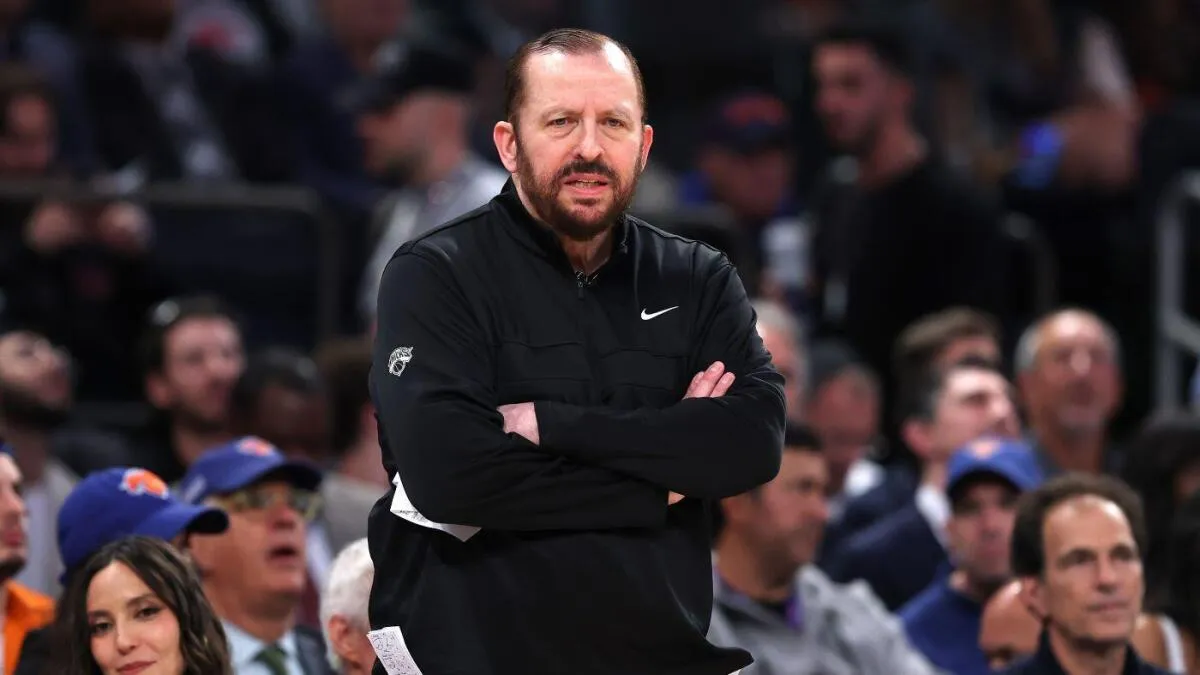
No lineup in NBA basketball has logged more minutes than the starting five of the New York Knicks. The quintet of Jalen Brunson, Josh Hart, Mikal Bridges, OG Anunoby, and Karl-Anthony Towns accumulated a staggering 940 minutes during the regular season. In fact, only two other lineups in the league came close to that number, illustrating the Knicks' reliance on their top players. This trend is a hallmark of head coach Tom Thibodeau, who has built a reputation for leaning heavily on his star players throughout his 12 seasons as a head coach. Notably, one of his players has led the NBA in minutes per game in four of those seasons.
Thibodeau's coaching style often prioritizes the players he trusts most, a tendency that has been both a blessing and a curse. His 2018 Timberwolves' starting lineup also led the league in total minutes, showcasing his reliance on a core group of players. However, this approach may ultimately jeopardize his chances of reaching the NBA Finals for the first time. Despite the success of various lineups during the playoffs, Thibodeau continues to rely on a starting group that has not performed well.
Interestingly, of the 18 most-used lineups by the Knicks during the playoffs, 12 have achieved a positive point differential, with a 13th remaining neutral. However, among the five lineups with negative differentials, three were outscored by single digits, indicating that the team has the potential to perform well. The most-used lineup, comprised of New York's starters, has played 308 minutes in the postseason and has been outscored by 50 points—a strikingly poor performance. Statistically, this kind of deficit is almost unheard of; the last lineup to hit a minus-50 or worse was the Oklahoma City Thunder's starting five during the Orlando bubble in 2020.
Since the tracking of lineup data began in 2008, only seven lineups have experienced a minus-50 threshold in a single postseason, with only one other—the starters for the 2018-19 Portland Trail Blazers—exceeding 200 minutes. This raises an important question: why does Thibodeau continue to deploy a struggling lineup? The data suggests that if a lineup is underperforming in the playoffs, coaches typically pivot to different combinations to capitalize on better-performing units.
In December, New York's starters showcased their potential with a remarkable plus-63 point differential across 241 minutes. Yet, outside of that month, their performance has been lackluster, failing to achieve a better point differential than plus-15 in any subsequent month. As they entered the Eastern Conference Finals, the starters had been outscored by double digits in four of their first 12 playoff games. In Game 1 against the Pacers, the Knicks performed better when at least one reserve was on the court, winning those minutes by 13 points, while losing the game due to the starters' minus-16 performance.
Despite acknowledging the need for lineup adjustments, Thibodeau inexplicably continued with the same starting five in Game 2. The starters' initial performance in Game 1 was underwhelming, as they were outscored by eight points during their first stint. After bringing in the starters for the third quarter, the team quickly fell from a three-point halftime lead to a two-point deficit. Although Thibodeau eventually switched to lineups that included reserves for the remainder of the game, the damage had already been done.
Through the first two games of the series, the Knicks have found success when their starting lineup is not on the floor, winning those minutes by 21 points. Yet, they find themselves in a 2-0 hole largely due to Thibodeau's reluctance to adapt his lineup. Mikal Bridges pointed out the starters' struggles, suggesting they may be playing too soft at the beginning of halves. The statistics underscore this issue: the starting lineup has a defensive rating of 117.6 in the playoffs, which would rank 26th among all teams during the regular season.
Two key reserves, Miles McBride and Mitchell Robinson, have excelled defensively this postseason, yet their contributions are often limited by Thibodeau's lineup choices. Josh Hart, while a solid help defender, does not exert the same pressure on the ball as McBride, and this discrepancy is affecting the Knicks' overall defensive performance. Hart's energy is better utilized off the bench, allowing him to make a more significant impact without the starters.
New York's major advantage in this series lies in rebounding, as the Pacers ranked 28th in rebounding rate during the season. When Robinson is on the floor, the Knicks secure 58.8% of available rebounds, compared to just 50.5% when he is off the court. If Thibodeau continues to limit Robinson's minutes by bringing him off the bench, the Knicks risk squandering their rebounding edge, which could ultimately cost them the series.
Thibodeau's reluctance to adjust the starting lineup has become a focal point of criticism, particularly given the wealth of data highlighting its inefficacy. Fans and analysts alike have called for changes, and had Thibodeau listened to these pleas, the Knicks might be closer to clinching a spot in the Finals. Instead, they face the possibility of elimination, trailing 2-0 in the series with three road games still ahead. Understanding which players to deploy on the court is one of the most straightforward measures of coaching quality, and Thibodeau's adherence to a failing strategy is putting the Knicks' postseason hopes in jeopardy.